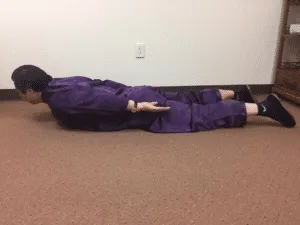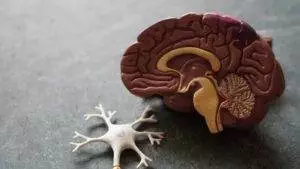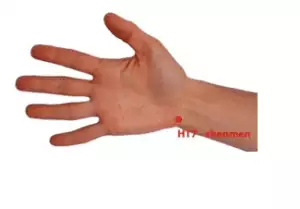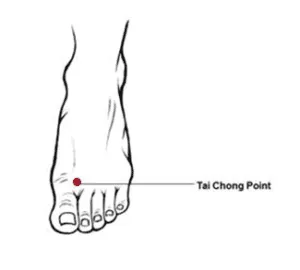-
 Art of Wellness Acupuncture & Traditional Chinese Medicine (TCM)11704 Wilshire Blvd, Suite 295, Los Angeles, CA, 90025
Art of Wellness Acupuncture & Traditional Chinese Medicine (TCM)11704 Wilshire Blvd, Suite 295, Los Angeles, CA, 90025
myartofwellness@gmail.com310-451-5522 Office Hours
MonClosedTue7:30 am --4 pmWed7:30 am --4 pmThu7:30 am -- 4 pmFri7:30 am -- 4 pmSat7:30 am -- 4 pmSunClosedOur office opens from Tuesdays to Saturdays 7:30 am to 4 pm, will be closed on Memorial day, Independent day, Labor day, Thanksgiving day, Christmas and New year.
-
Recent Posts
- How to Treat De Quervain’s Tenosynovitis With Acupuncture and TCM
- Chinese New Year 2026: Year of the Horse
- Acupuncture and TCM Treatment for Perimenopause Symptoms
- How to Treat Insulin Resistance With Acupuncture and TCM
- How to Treat Metabolic Syndrome With Acupuncture and TCM
- How to Treat Syncope With Acupuncture and TCM
- How to Treat Thoracic Outlet Syndrome With Acupuncture and TCM
- How to Treat Dupuytren’s Contracture With Acupuncture and TCM
- How to Treat Nutcracker Syndrome With Acupuncture and TCM
- How to Treat Rosacea With Acupuncture and TCM
- How to Treat Perioral Dermatitis With Acupuncture and TCM
- Lymphatic Drainage With Acupuncture and TCM
- How to Treat Turf Toe With Acupuncture
- How to Treat Nerve Pain With Acupuncture and TCM
- How to Treat Watery Eyes With Acupuncture and TCM
- How to Treat Ovarian Cysts With Acupuncture and TCM
- Sign up to receive news and updates and get my free report:“The Top 10 Reasons to Try Acupuncture”

December 2025 M T W T F S S 1 2 3 4 5 6 7 8 9 10 11 12 13 14 15 16 17 18 19 20 21 22 23 24 25 26 27 28 29 30 31
Traditional Chinese Medicine
What Is MS? How to Treat Multiple Sclerosis with Acupuncture and TCM
Qineng Tan, L.Ac., Ph.D.
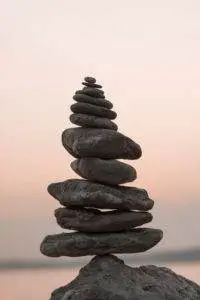
Multiple Sclerosis is a progressive autoimmune disorder in which the body’s defense system mistakenly attacks the protective covering of nerve cells. Also known as MS, it is an autoimmune disease that affects many people in the United States and around the world. MS This leads to miscommunication between the brain and the rest of the body. TCM and Acupuncture are among the best approaches for improving the quality of life and managing symptoms of MS, without the negative side effects that other medicines that cause. In this article, we will learn how TCM diagnoses and addresses MS. We will also look at the cases of a few patients who have worked with Dr. Tan at Art of Wellness and experienced positive results.
Causes of MS
MS is an autoimmune disease in which infections or environmental changes can confuse the body’s defense system. Sometimes a foreign antigen mimics a group of the body’s own proteins. When the immune system response by mounting an attack against these foreign invaders, it inadvertently destroys the foreign antigen along with any similar antigens, including the body’s own tissues.
A recent study shows that a virus called adenovirus type 2 looks remarkably similar to the composition of the protective covering around the spinal cord and parts of the brain—the myelin sheath cells. The attacks of the immune system of this virus along with the mistaken attack on the myelin sheath is believed to be the ultimate cause of multiple sclerosis.
Common symptoms of MS include:
- numbness or tingling, usually in the leg or arm
- muscle weakness
- dizziness
- spasticity
- pain (moderate to severe)
- Ataxia (impaired balance or mobility due to nerve damage)
- tremor
- slurred speech
- blurry, double vision or blindness
- bladder malfunction
- bowel dysfunction
- sexual dysfunction
- depression
- euphoria
- cognitive abnormalities
- fatigue
- facial pain (Trigeminal Neuralgia)
How to Treat MS
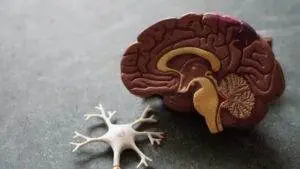
Unfortunately, there is no cure for MS yet. In Western Medicine, the treatment focuses mainly on decreasing the rate and severity of relapse. Beta interferons, anti-cancer drugs (to weaken the immune system), and steroids are commonly used for the treatment of MS. These medicines can reduce the number of MS lesions, delay the progression of the disease, and provide symptomatic relief for the patient.
A condition called “Wei Syndrome” with symptoms similar to MS, was documented 2000 years ago in a classic Traditional Chinese Medicine textbook called the Yellow Emperor’s Classic of Medicine. Acupuncture and Traditional Chinese Medicine has been involved in the treatment ever since. MS patients who have tried acupuncture report improvement in pain, spasticity, numbness and tingling, fatigue, depression, anxiety, bowel and bladder function.
Most commonly, MS first manifests itself in a series of attacks followed by complete or partial remission as symptoms mysteriously lessen. These symptoms, however, will return later after a period of stability. This is called relapsing-remitting (RR) MS.

Dr. Tan Case Study – Diagnosis of MS
Mr. M, a healthy 50-year old gentleman, first visited my office a few years ago. As an attorney, he had been working very
hard to support his two daughters, who were both in college. About four months previous, the onset of severe lower back pain along with tingling in his left leg changed his life completely. He saw several doctors, had a number of x-rays and an MRI which revealed a moderate bulging disk on L4-L5. He tried different pain pills, NSAIDs, and underwent three months of physical therapy, none of which helped. Recently, he had been experiencing numbness and weakness in his left leg, and was suffering from depression due to his inability to carry on with daily work and regular activities. When he talked to me, I noticed that he constantly rubbed his eyes. I asked if he felt any abnormalities in his vision. He answered yes, and that he had periodic occurrences of blurred vision. When I suggested that he show me how he walks, I noticed his poor balance. He tended to fall on his left side because his left leg did not seem to follow his motion. Then I checked his knee and ankle reflex and found that they were excessively active. I was almost certain that the condition that made him suffer so much in the last few months was not a simple bulging disk or sciatica; it was a disorder of the central nervous system: Multiple Sclerosis. Immediately, I referred him to a neurologist and suggested that he have a brain and cervical MRI. Two weeks later, he came back to my office with a confirmed diagnosis of Multiple Sclerosis.
Mr. M. is just one of 200 patients who are diagnosed with MS every week in the United States. There are about 400,000 people in the U.S. and 2.5 million patients who are suffering from this disease in the world.
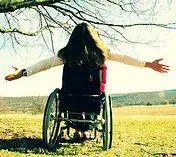
Patient Testimonial – Gilly
“I was diagnosed with Relapsing Remitting MS in 1991 and I had no idea what a crazy, unpredictable journey I was about to embark on. I woke up one morning, tried to get out of bed but my legs were like jello, I had no balance and had double vision. I was given a spinal tap and MRI and lesions were detected on my brain & cervical spine.
When first diagnosed, my neurologist put me on one of the few FDA approved medicines for MS which don’t cure the disease, but delay the progression. For that I inject myself daily and have done so for seventeen years. For the first seven years after being diagnosed, I experienced relapses (flare ups of symptoms) on average twice a year. The treatment for relapses was a five day course of steroids administered through IV, followed by twelve days of oral steroids. The relapses affected my motor skills the most, especially walking, but after a treatment of steroids, I was almost as good as new.
My friends suggested that I try acupuncture. I was recommended to Dr. Tan because he had studied MS in China. Dr. Tan has been monumental in my life. He has given me treatments for a multitude of injuries I’ve suffered over the years due to frequent falls and is an expert in pain relief. He treats me for stress relief which contributes to my general well-being. Dr. Tan is very knowledgeable about Western medicine and MS treatments, so I always ask his opinion.
I’ve now been diagnosed with MS for twenty-one years and feel fortunate that Dr Tan has been treating me for a large part of that time. Although I partake in Western medicine, I know that Western medicine only treats the symptoms, but Eastern medicine treats the cause of the symptoms. My MS has progressed to the stage that I now use a wheelchair full time. I go to acupuncture for preventative care. My immune system needs extra help, especially during cold and flu season.
I am very aware that MS is a ‘designer’ disease, and no two people have the exact same symptoms. I would encourage anyone with MS to avoid stress, keep up a healthy immune system and try to stay positive and happy, because your emotional state affects your physical being.
Self-Care for People with MS
Maintaining a healthy lifestyle is very important for the MS patient. This includes:
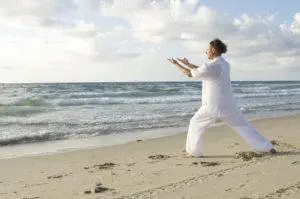
- Getting enough time to sleep and rest. Early bedtime is best.
- Exercise regularly. Tai Chi and Yoga are very good to help with relaxation, balance and muscle strength.
- Balanced diet, including a lot of vegetables and enough protein from white meat.
- Stress management
- Daily meditation and positive thinking
- Staying connected with friends and joining a support group
Our clinic has been chosen as one of the top 19 picks among 825 acupuncturists in the greater Los Angeles area. Dr. Tan is an expert in neurological conditions such as MS. Many patients like Gilly and Mr. M have been able to gain more control over their symptoms with their treatments at Art of Wellness. If you or someone you know has MS, call and visit our Santa Monica clinic to experience the best care available.
Happy New Year 2020 – Year of the Rat

Qineng Tan L.Ac., Ph.D.
Gong Xi Fa Cai! We wish you congratulations and prosperity in the New Year!
The Chinese Zodiac, like the Western Zodiac, is comprised of twelve signs, characters signified by animals. Like all of the Taoist arts, Chinese Astrology operates on both the microcosmic and macrocosmic levels. The twelve signs are used to divine information about the personalities of people born under those signs, and also to give meaning and context to the events that occur globally over the course of that year. Check here to find the sign of your birth year.
In the year 2020, we greet the Rat. The Rat is the first of the twelve signs. This means we are beginning a new cycle. According to legend, the Jade Emperor set a challenge to create the order of the signs – they would be arranged according to their arrival to his celebration feast. The Rat and the Cat hopped lightly up onto the Ox’s back, unbeknownst to her, and hitched a ride. As they were crossing a river, though, Rat bumped Cat off into the water. (Accidentally or intentionally? At any rate, this story explains why Cats chase Rats, and why there is no Cat in the Zodiac.) When the Ox was about to cross the finish line, Rat jumped down and landed before the Emperor first!
So, the Rat is a bit tricky and opportunistic, but also quite clever and resourceful. Being first in the cycle, he represents the dawning of a new day, with plenty of Yang energy. Rats’ ability to multiply in numbers makes them a potent symbol of fertility and abundance.
Each circle of twelve years also brings through a new cycling of the elemental energies that develops over the course of a 60-year calendar. Rat of 2020 is Metal. Metal rat is relatively grounded and stable. On the surface, he is always positive and sure of himself, but in secret, he worries that he is not always in the right.
Rat’s optimism and dynamic personality make him popular, even though his way of expressing himself might seem a bit brash or even downright rude. Rats know how to make the best out of a bad situation. They like to hoard rather than spend. This can be thrifty, but might also lead to hanging on to things that aren’t essential.
Rats tend to run around in a burst of energy and then get tired and sick. They also tend to get busy and forget to eat, and then eat too much of the wrong things. So, let’s all remind ourselves to pause frequently for rest and nourishment, setting ourselves up to do well when it’s go time.
From our Art of Wellness family to yours, we wish you good health and all the very best that the New Year has to offer! Read more about our favorite New Year traditions here. And for advice on making the most of your resolutions, read more here.
Feng Shui for the Chinese New Year

Feng Shui is the ancient art and science of creating harmonious living and working spaces. It is part of the Taoist traditions that also include Traditional Chinese Medicine and modalities like Qi Gong and Tai Qi. Like these other practices, Feng Shui is a way of purposefully directing energy – “Qi – to create a beneficial outcome. People often consult a professional when they are moving into a new house or work space, or trying to create more growth in some area of their lives. When it comes to greeting the new year with hope and purpose, Feng Shui a great way to align actions with intentions.
In the context of Feng Shui, every space has a map. This map indicates the difference areas of energy within it that correspond to other aspects of life, and can be used by the people who inhabit it as a guide for which direction to take.
Harness your best energy in the new year by first deciding on your focus: increasing your financial wealth, improving your physical and mental health, or improving your relationships with others. To find the directions within your home or office space, use a digital compass. Then, find your Gua number, based on the year of your birth. Finally, find your number in the Eight Mansions chart to show you which way to direct your energies so that they find the most fertile ground.
To bring positive energy flowing towards your health, wealth and love, turn your bed so that your head is pointed towards the right direction while you sleep. Turn your desk that way, too, and if you are meeting new clients or love interests, be sure to face your key direction as you shake hands. Any place in your home that you spend a lot time, arrange yourself to be facing your goal orientation.You may begin to feel results right away, but be patient. It can take up to three months for the changes to be fully felt.
Chinese New Year Recipe – Lucky Stir-Fry
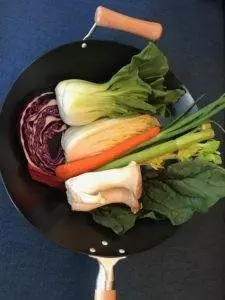
Many traditional recipes populate menus for the New Year celebration, but the important thing is to serve and eat foods that signify some type of luck to be sought and welcomed in the upcoming year. It’s possible to create a beautiful and meaningful dish that’s entirely plant-based, too. The Chinese word for “abundance” – “shi” – also means the number “10,” so some people like to serve a dish with ten different types of vegetables. But add as many you find appealing and keep things simple with a stir-fry. Start with a little bit of cooking oil, then add one or two aromatics, such as scallion, garlic, ginger, chilies. Once it’s hot, add your harder, crunchier vegetables first, then in another minute, toss in the softer, leafier ones. Add a little water to create some steam, then finish with a drizzle of sesame oil and soy sauce.
Symbolism of Vegetables
cilantro – compassion
bean sprouts – abundance
napa cabbage – prosperity
bamboo shoots – a fresh start
cashews – gold, money
Coconut – togetherness
Mushroom – longevity
Peanut – stability and growth
Pumpkin – success for one’s children
Sticky rice – the family staying together
Snowpeas – unity
Everything about your veggie stir-fry signifies freshness, and eating it certainly bodes well for your future health.
“Fú shòu shuāng quán.” “May you enjoy both longevity and blessing.”
How to Treat Lower Back Pain with TCM and Acupuncture
by Qineng Tan, L.Ac., Ph.D.
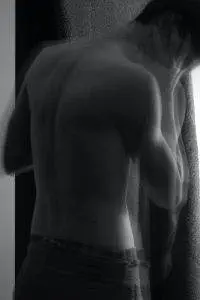
That sudden, scary sensation of pulling in your lower back that lets you know you’re in for more pain later. The nagging, daily ache that develops over time. Lower back pain can really feel like a burden, holding you back from enjoying your life. If you are searching for how to reduce low back pain, Acupuncture and TCM can provide real relief.
Pain in the lower back is one of the most common complaints heard by healthcare practitioners. The vast majority (80%) of adults experience at least one episode of low back pain at some point in their lives. For some people, lower back pain becomes a chronic condition. It is the second most common cause of disability among adults in the United States.
This article will address the types and common causes of lower back pain, how to treat low back pain with acupuncture and TCM, and eight excellent suggestions for ways you can reduce low back pain and prevent flare-ups with lifestyle change and self care.
How to Treat Lower Back Pain – A Common but Complicated Condition
Lower back pain presents a challenge for physicians, because in many cases, there is no clearly discernible cause. Imaging scans may help us get a picture of structural damage to the spine, but they do not tell us the whole story. Pain is not just about structural or mechanical problems in the body. The problem may be mechanical, but it may also be chemical, emotional, behavioral, sociological, or a combination of any of these.
The American College of Physicians has just recently issued new guidelines regarding the treatment of lower back pain specifically advocating that doctors and patients first choose natural and alternative therapies, such as acupuncture and massage, over pain medications.
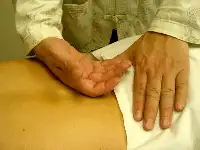
Acupuncture does not only address the immediate source of pain. TCM treats the whole person. An acupuncturist will study the different factors of each patient’s unique presentation of symptoms in making a diagnosis and designing a course of treatment. This will include not only acupuncture, but herbal formulae to support the healing of the body, and specific exercise and nutrition advice to strengthen the whole body from the inside. Lower back pain can take its toll on a person’s psychological outlook. Stress and depression can turn an acute problem into a chronic one. Treating the underlying causes of an acute condition can prevent it from becoming recurrent or chronic.
Types of Lower Back Pain
Most patients experience a generalized, nonspecific kind of lower back pain. These may be related to muscle strain or stiffness, repetitive movements or unfavorable sitting or sleeping positioning. Other conditions are based on specific injuries or pathologies. Some types of pain, such as sciatica, are rooted in the nerves, possibly due to pinching or other damage, and causing hip pain and pain that radiates down the leg. Sometimes the sensation is more like tingling or numbness than fiery pain.
In over 30 years of practice in treating all different types of lower back pain, we have often seen patients who had only minor structural problems but were experiencing severe pain. Many patients who have had surgery to correct a problem; their scans may show that the problem has been “fixed”–but they are still in a lot of pain. In other words, a person’s experience of pain or loss of mobility may not correspond to what we see in an image.
Common conditions leading to back pain include (but are not limited to):
- Degenerated disc
- Bulging or herniated disc
- Spinal stenosis
- Spondylolisthesis (slipped disc)
- Spinal scoliosis
- Arthritis
- Muscle strain
- Muscle spasm
- Pinched nerves
- Nerve damage
- Kidney stones or gallstones
- Digestive issues (constipation
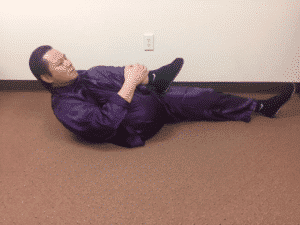
Eight Tips for Self Care to Reduce and Prevent Lower Back Pain
With TCM, we aim for long-term, lasting results. At the same time, we guide the patient in vital lifestyle improvements, such as regular de-stress meditation, gentle exercise such as Tai Chi or yoga, and an anti-inflammatory diet.
Here are some specific things you can do at home to help enhance the effects of acupuncture treatment and reduce lower back pain:
- Moderate exercise: walk, swim, Tai Chi, yoga, Pilates, and gentle stretching. It might be tempting to spend a lot of time in bed when you have back pain, but in most cases, lack of movement does more harm than good.
- Avoid lifting anything heavy; always remember to bend from the knees and not from the back when lifting any kind of weight. Forward bends as part of an exercise routine can also be aggravating.
- Weight control
- Anti-Inflammatory Diet: avoid coffee, spicy foods, nightshade vegetables (tomato, potato, eggplant and bell pepper). For more anti-inflammation information , read How to reduce and prevent inflammation

Strengthen the lower back - Change posture during your work, move around for a few minutes every hour, at least.
- Cold and Heat: Use a cold compress for the first three days if there is an acute injury or any time right after exercise. Use heat 3-5 times per day for chronic pain.
- Make sure your mattress is medium firmness and comfortable.
- Do stretches and gentle strengthening exercises specifically for the lower back. Also work on strengthening all the core muscles. Remember that the lower part of the spine is actually in the center of the body. Using the abdominal muscles to help you move and lift things takes the strain off of the back muscles.
Acupressure for Low Back Pain
Using your opposite thumb or forefinger, locate the crevice between the bones of your 4th and 5th finger, just beneath the knuckles. Press deeply until you feel tenderness there. Hold the pressure while you gently but vigorously move and stretch your lower spine and hips. Then, drag your thumb or finger down, finding another crevice just above the base where the 4th and 5th metacarpal bones meet. Apply pressure, again, while wiggling and turning from the lower back. This will help release tension and tightness and relieve pain.
What Do I Do If the Above Does Not Work?
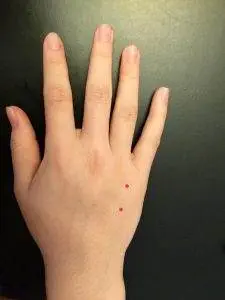
If you are in pain, and nothing has helped, you may be wondering how to find acupuncture near me. Look for an acupuncturist who is board certified in your state. A good acupuncturist is highly trained and has experience in integrative medicine, so that they can work with your primary physician if needed. At Art of Wellness, we suggest a first appointment should include an in-depth consultation and exam. Usually an acupuncturist will recommend a course of treatment that include sessions two or three times per week for the first few weeks, then will reevaluate to keep track of progress and improvement. Look for a place where you feel comfortable, listened to, and able to relax. Your acupuncturist will make recommendations for TCM herbal formulae and dietary changes that will help your condition. These may seem difficult to follow at first, but they will help your body heal better and more quickly. New healthy habits can help prevent your lower back pain from coming back.
What is Multiple Sclerosis and How to Manage MS with TCM & Acupuncture
Multiples Sclerosis is autoimmune disease, Traditional Chinese Medicine & Acupuncture are very helpful to improve these condition.

Dr.Tan’s Case and Testimony
Mr. M- a healthy 50-year old Caucasian gentleman—first visited my office Art of Wellness Acupuncture a few years ago. As an attorney, he had been working very hard to support his two daughters, who were both in college. About four months ago, the onset of serve lower back pain along with tingling in his left leg changed his life completely. He saw several doctors, had a number of x-rays and an MRI which revealed a moderate bulging disk on L4-L5. He tried different pain pills, NSAIDs, and underwent three months of physical therapy, none of which had helped. Recently, he had been experiencing numbness and weakness in his left leg, and was suffering from depression due to his inability to carry on with daily work and regular activities. When he talked to me, I noticed that he constantly rubbed his eyes. I asked if he felt any abnormalities in his vision. He answered yes, and that he had periodic occurrences of blurred vision. When I suggested that he showed me how he walks, I noticed his poor balance. He tended to fall on his left side because his left leg did not seem to follow his motion. Then I checked his knee and ankle reflex and found that they were excessively active. I was almost certain that the condition that made him suffer so much in the last few months was not a simple bulging disk or sciatica; it was a disorder of the central nervous system-Multiple Sclerosis. Immediately, referred him to a neurologist and suggested that he have a brain and cervical MRI. Two weeks later, he came back to my office with a confirmed diagnosis of Multiple Sclerosis.
Mr. M. is just one of 200 patients who are diagnosed with MS every week in the United States. There are about 400,000 people in the U.S. and 2.5 million patients who are suffering from this disease in the world.
Cause of MS
MS is an autoimmune disease in which infections or environmental changes can confuse the body’s defense system. Sometimes a foreign antigen mimics a group of the body’s own proteins. When the immune system response by mounting an attack against these foreign invaders, it inadvertently destroys the foreign antigen along with any similar antigens, including the body’s own tissues.
A recent study shows that a virus called adenovirus type 2 looks remarkably similar to the composition of the protective covering around the spinal cord and parts of the brain—the myelin sheath cells. The attacks of the immune system of this virus along with the mistaken attack on the myelin sheath is believed to be the ultimate cause of multiple sclerosis。
Common symptoms of MS
- numbness or tingling, usually in the leg or arm
- muscle weakness
- dizziness
- spasticity
- pain (moderate to severe)
- Ataxia
- Tremor
- Slurred speech
- Blurry, double vision or blindness
- bladder malfunction
- bowel dysfunction
- sexual dysfunction
- depression
- euphoria
- cognitive abnormalities
- fatigue
Most commonly, MS first manifests itself in a series of attacks followed by complete or partial remission as symptoms mysteriously lessen. These symptoms, however, will return later after a period of stability. This is called relapsing-remitting (RR) MS.
Treatment of MS
Unfortunately, there is no cure for MS yet. In Western Medicine, the treatment focuses mainly on decreasing the rate and severity of relapse. Beta interferons, anti-cancer drugs (to weaken the immune system), and steroids are commonly used for the treatment of MS. These medicines can reduce the number of MS lesions, delay the progression of the disease, and provide symptomatic relief for the patient.
In TCM, a condition called “Wei Syndrome” with symptoms similar to MS, was documented 2000 years ago in a classic Traditional Chinese Medicine book called Emperor Classic Medicine. Acupuncture and Traditional Chinese Medicine has been involved in the treatment ever since. MS patients who have tried acupuncture report improvement in pain, spasticity, numbness and tingling, fatigue, depression, anxiety, and bowl, bladder function.
Maintaining a healthy lifestyle is very important for the MS patient. This includes:
- Getting enough time to sleep and rest. Go to bed early
- Exercise regularly. Tai Chi and Yoga are very good to help patient relax, balance and with muscle strength
- Balanced diet, a lot of vegetables and enough protein from white meat
- Stress management
- Daily meditation and positive thinking
- Staying connected with friends and joining a support group
- How to reduce and prevent inflammation
Patient Story- Gilly
I was diagnosed with Relapsing Remitting MS in 1991 and I had no idea what a crazy, unpredictable journey I was about to embark on.
I woke up one morning, tried to get out of bed but my legs were like jello, I had no balance and had double vision.
I was given a spinal tap and MRI and lesions were detected on my brain & cervical spine.
When first diagnosed, my neurologist put me on one of the few FDA approved medicines for MS which don’t cure the disease, but delay the progression. For that I inject myself daily and have done so for 17 years
For the first 7 years after being diagnosed, I experienced relapses (flare up of symptoms) on average twice a year. The treatment for relapses was a 5 day course of steroids administered through IV, followed by 12 days of oral steroids.
The relapses affected my motor skills the most, especially walking but after a treatment of steroids, I was almost as good as new.
My friends suggested I try acupuncture. I was recommended to Dr Tan because he had studied MS in China. *
Dr Tan has been monumental in my life. He has given me treatments for a multitude of injuries I’ve suffered over the years due to frequent falls and is an expert in pain relief. He treats me for stress relief which contributes my general wellbeing. Dr Tan is very knowledgeable about Western medicine and MS treatments so I always ask his opinion.
I’ve been diagnosed with MS for 21 years and feel fortunate that Dr Tan has been treating me for a large part of that time. Although I partake in Western medicine, I know that Western medicine only treats the symptoms but Eastern medicine treats the cause of the symptoms.
My MS has progressed to the stage that I now use a wheelchair full time.
I go to acupuncture for preventative care. My immune system needs extra help especially during cold & flu season.
I am very aware that MS is a ‘designer’ disease, and no two people have the exact same symptoms. I would encourage anyone with MS to avoid stress, keep up a healthy immune system and try to stay positive and happy, because your emotional state affects your physical being.
How to Sleep Better with Acupuncture and TCM
By Qineng Tan, L.Ac., Ph.D.
Do you suffer from insomnia or do you have trouble falling asleep and staying asleep? Acupuncture and Traditional Chinese Medicine (TCM) offers many solutions on how to sleep better without sleeping aids. TCM stresses the importance of getting a good night sleep. Chinese medicine has tools such as; exercise, Chinese herbal medicine, acupuncture, and meditation all which can help you get a good sleep so you can function at the highest potential throughout the day. Below you will read about TCM and the history it provides in regards to sleep and the many tips that can help you get the best sleep tonight.
History of Sleep with TCM
Sleep is a part of the interplay of yin and yang: yang energy is dominant when we are awake and active, and yin energy rules sleep. Night is yin; daylight is yang. This is all in keeping with the holistic, universal nature of TCM (Traditional Chinese Medicine) theory. Our bodies are designed to work with the movements of the earth, sun, and moon. When a person experiences insomnia, either hard to fall asleep or wake up often then difficult to fall back to sleep, there is a lack of balance. The body is out of sync with its environment. The yang energy is taking over, or not interplaying with yin appropriately.
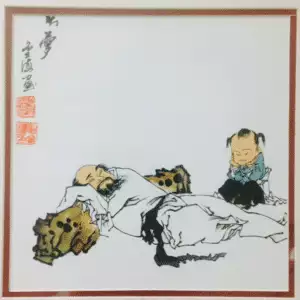
In TCM terminology, “Shen” is the spirit, the energy which controls our mental activities and thought. During sleep, Shen “hides” in the organs – predominantly the Heart and the Liver – resting, so that it can function with sharpness during our waking hours. Insomnia, in TCM, is often viewed, then, as a problem of the Heart system, or the Liver system. If one of these major organs is unable to “house” the Shen, then the Shen will wander restlessly, causing sleeplessness.
Protective Qi cycles through the body continuously, but it follows different paths along the meridians at different times of the day and night. During the day, protective Qi, which fights off pathogens, moves through the yang meridians, and during the night, it flows through the yin meridians. If you find yourself waking up at a particular hour in the middle of the night every night – or feeling sluggish at one particular time every day – it is probably related to some deficiency of Qi in that area.
Between the hours between 1:00 and 3:00 a.m. the liver meridian is actively supplying Qi to the liver system so that it can clean toxins from the blood. Then, between 3:00 and 5:00 a.m., the freshly cleaned blood and energy is being delivered to the organ systems. It is especially important to be sleeping soundly during that time. The liver does all the heavy lifting of cleaning and detoxifying the blood and therefore, the whole body. If the liver is stinted of its full rest and rejuvenation, night after night, we can be left feeling truly sick and tired.
Sleeplessness may be the central problem for some people; for others, it’s just a part of the big picture. Many people have gone so long without restful sleep that they have become used to it and just consider it their new “normal.” When you come in to Art of Wellness for a visit, our doctors will ask many questions to get a sense of what kind of sleep problems you’re having, including other symptoms that may be related to the same root issue.
- Having trouble falling asleep may be related to an excess condition of the liver and/or gall bladder.
- Waking easily and then having trouble falling back to sleep may point to a deficiency of the Heart Yin or too much internal heat.
- Nightmares may indicate a gall bladder meridian problem, while repetitive, literal dreams (about work, for example) might indicate a heart/spleen problem.
Sleep problems can be related to other conditions, such as depression, menopause in women, fibromyalgia, chronic fatigue syndrome, and cardiovascular disease.
How to Make Winter A Time of Rest and Renewal
Getting a good night sleep is always important, but in the Wintertime. Nature and our bodies are really asking us to rest more, and more deeply, than we do during other times of the year. This is a time for the body to store energy. If we go at a frantic pace, and behave the same way we do in the middle of summer, we will become depleted.
Unfortunately, our current culture does not necessarily support this idea. It seems we are asked to do more and be more than ever during the rush of the winter holiday season. It really is vital to prioritize “doing less” in order to preserve good health.
People with sleep problems seek tips for help. The practices in acupuncture and TCM help you to be calm. Visit the link and read some TCM tips for sleep.
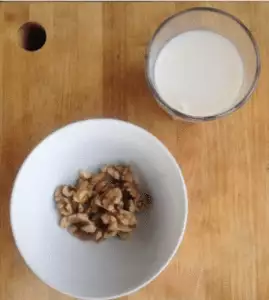
Top 20 Tips For Creating Calm so That You Can Get A Good Sleep
- Choose carefully how many social commitments you make. You don’t have to attend every gathering – only the ones that are meaningful to you. If it feels more like an obligation than fun, make a plan to stop in, extend your greetings, and then leave early. This way, you won’t overeat, drink too much, and you can still get to bed a reasonable hour
- Don’t exercise too vigorously close to bedtime. An evening walk, or gentle program of Tai Qi or yoga will help you work out excess energy with stimulating you further
- Deep breaking techniques: using you lower abdomen, inhale deeply. Hold it for about 5 seconds, and then exhale slowly through your mouth. Repeat ten times. Deep breathing exercises not only relax your mind, but they help to dispel negative Qi from the body before bed
- Create an oasis of calm in your bedroom, with good ventilation, restful colors and no devices. Set a time, half an hour to hour before going to bed, when you will discontinue watching TV or looking at your computer and phone. The light stimulus from the screen is not helpful for falling asleep. Reading a book, writing in a journal, coloring in a coloring book, are all activities that help you wind down for the night.
- Change your eating habits: many people wake up around 3 AM and find it difficult to fall back asleep. This may be cause by low blood sugar level due to the over activity for the adrenal gland. For a better sleep, try to balance your blood sugar level daily by eating small portions of food about every 3 hours and drinking a glass of warm, low fat milk or eating a handful of nuts—such as raw walnuts or almonds, before bedtime. It helps to balance your blood sugar. Waking up in the middle of the night can be caused by fluctuating insulin levels – the result of too much sugar or alcohol in the evening.
- Keep your feet warm by soaking them in hot water for 15-20 minutes before bedtime. Also, massaging the bottom of the feet can help to stimulate key kidney points. Give a good, fast rub to the center of your soles for a few minutes to warm them while getting into bed.
- Stimulating acupressure points just before bedtime can be helpful. Use your thumb or fingertip to apply moderate pressure and rotate clockwise for 2-3 minutes.
- Shen Men, called the “Spiritual gate” point, releases heart fire, excitement, anger, irritation and anxiety.
- Tai Chong, a liver point can help alleviate insomnia due to excessive heat or stagnation in the liver, which can cause feelings of depression, stress, sadness.
- Take off any constricting clothing (underwear), and wear loose, comfortable pajamas for bedtime.
- There is an old saying: “sleep like the crescent moon.” Sleeping in a fetal position on your right side puts your heart above your liver, which helps drain blood, giving the heart some relief and extra nourishment to the liver. It also helps food move through your digestive system properly.
- Keep away from interruptions: Turn off your phone after dinner or keep a note book by your bed. If you keep thinking about sometime important to do, write it down.
- Listen to calm and relaxing music
- Sleep and wake at the same time every day, yes that includes weekends. Do not stay in bed for too long even when you do not have to go to work. Your body needs to have a regular sleep-wake cycle in order to function at its maximum

Shen Men Point - Reduce the water temperature for baths and showers: when the water temperature is well about body temperature, your body heat increases. Then when you get out of the water, your body heat decreases. Try to avoid such fluctuation of the body temperature.

Tai Chong Point - Keep your bedroom simple and clean: limit the number of electronic devices such as TV’s, computers from your bed room
- Do not play video games at night
- Obey the 20-minute rule: if you do not successfully fall asleep in twenty minutes, get up and do something else until you feel tired and ready to sleep again.
- Waterfall Meditation. In this exercise, imagine yourself at the base of a waterfall. As you breathe in and out, picture the water gently raining down on you, trickling down each route until the tension inside you releases, allowing your entire body to enter a peaceful and relaxed state.
- Oneness Meditation. Just as in the Waterfall exercise, picture yourself standing beneath a waterfall. This time, however, instead of relaxing parts of your body one section at a time, allow your entire body to relax simultaneously. Let the image of the water wash away any stress or anxiety that burdens you.
If you have tried all of these things are still not sleeping well, please come see us to find the underlying problem. Acupuncture and herbs can help address and correct deeper issues that are affecting your ability to find rest and peace. If you find you are experiencing insomnia or any other sleep disturbance, seek out solutions. Left unaddressed, a sleep problem can become chronic and debilitating. Talk to us, so we can help you pinpoint and fix the problem with lifestyle adjustments, acupuncture treatments, and herbal formulae.
